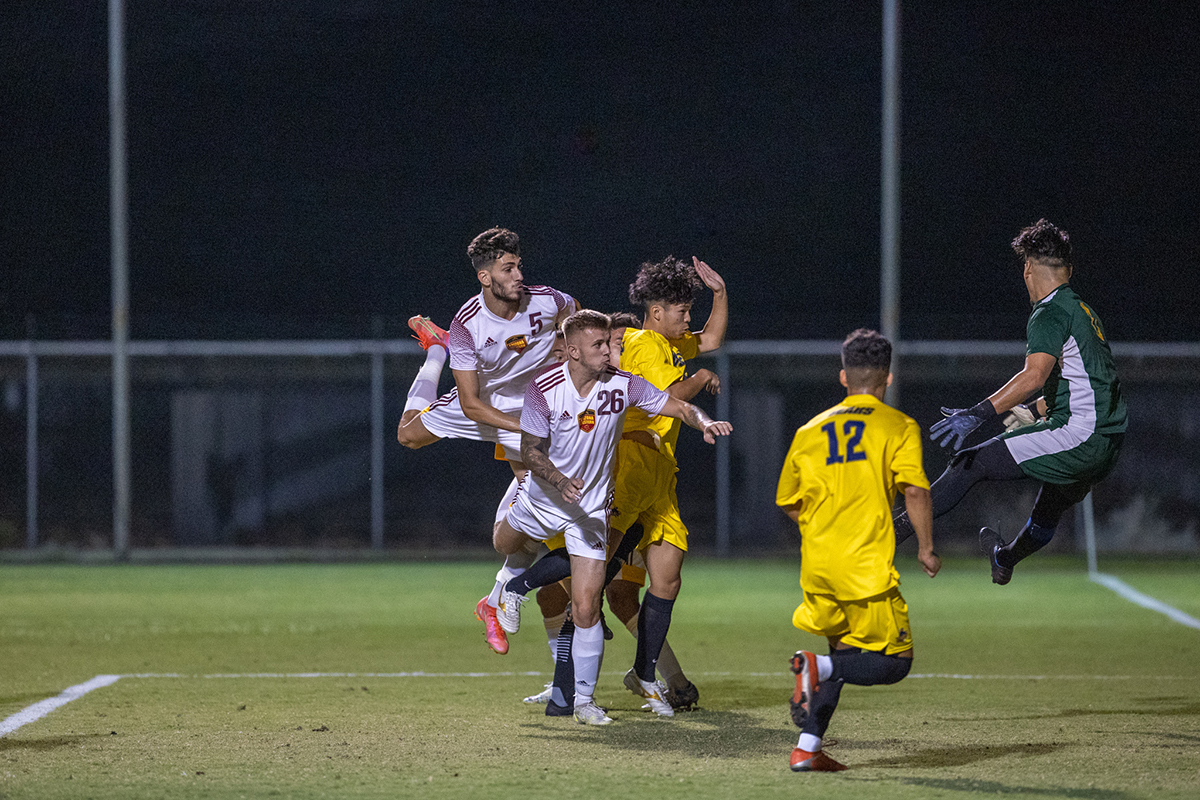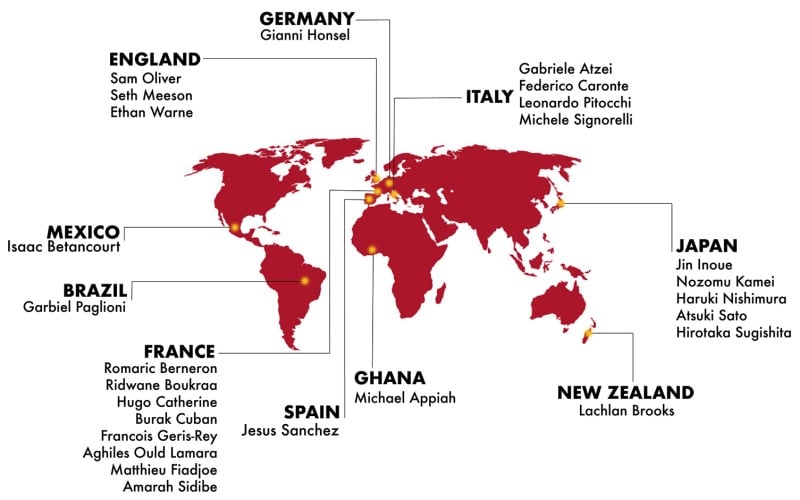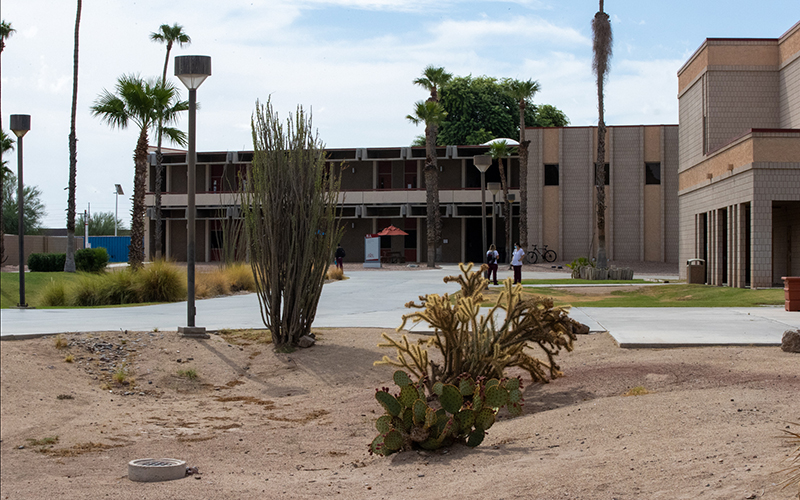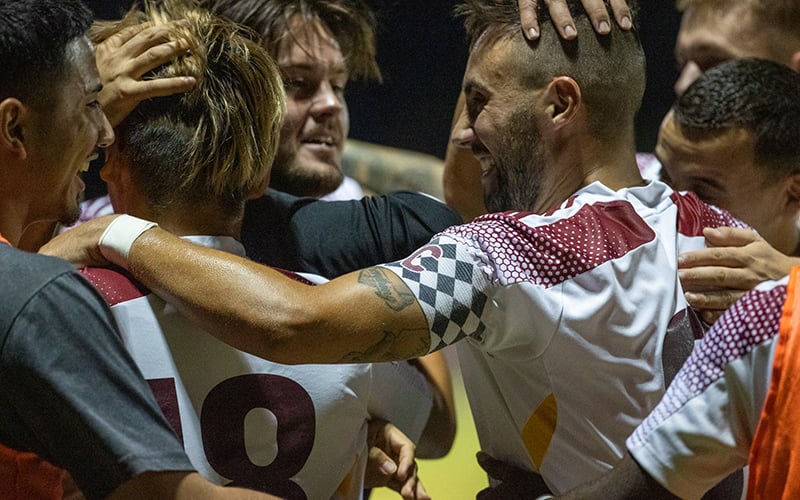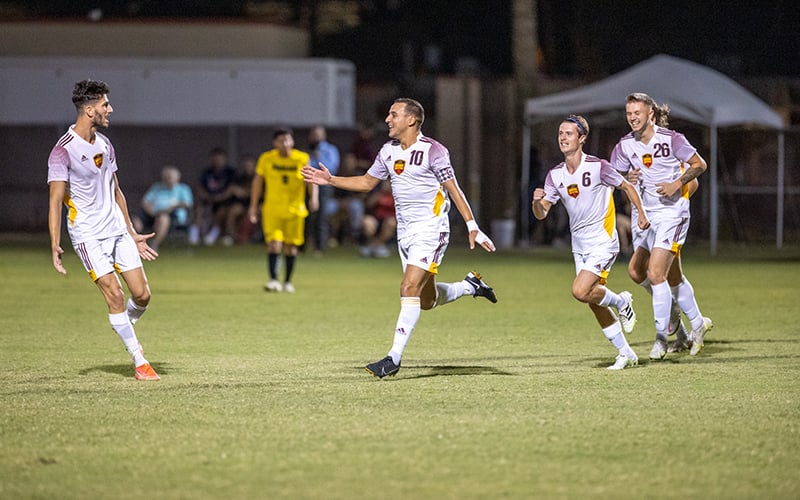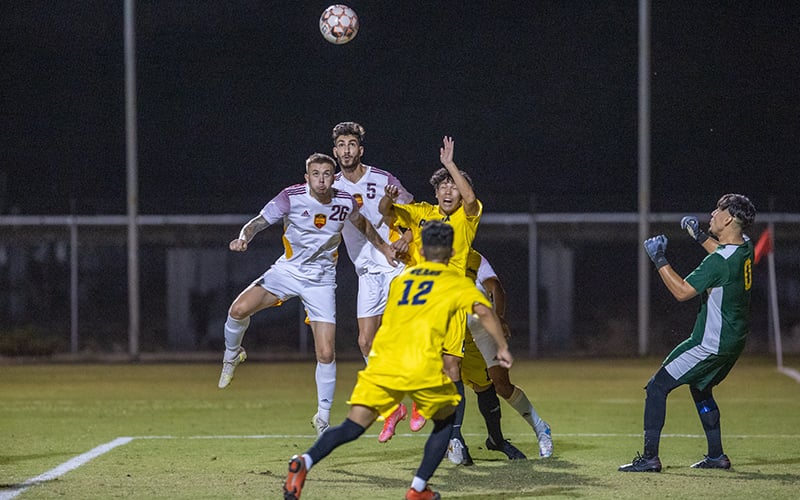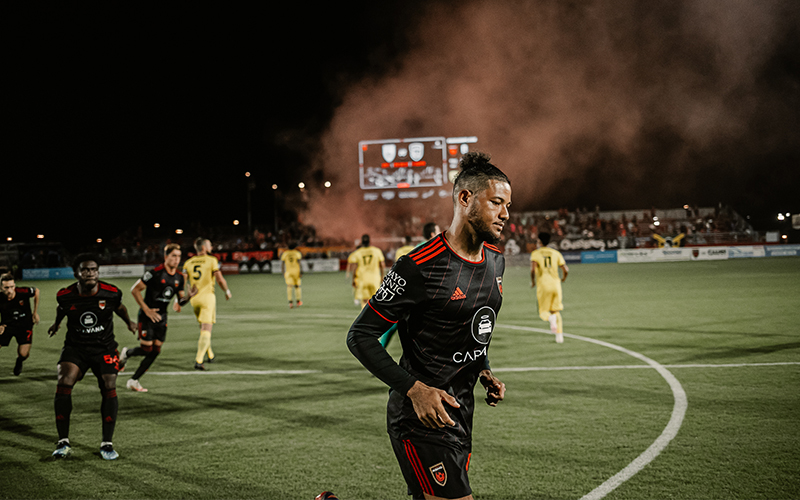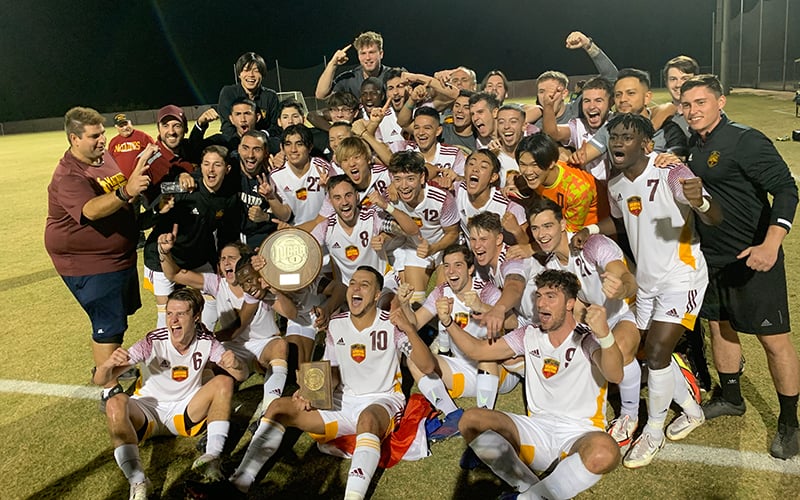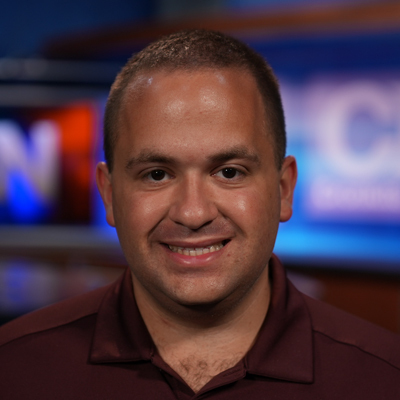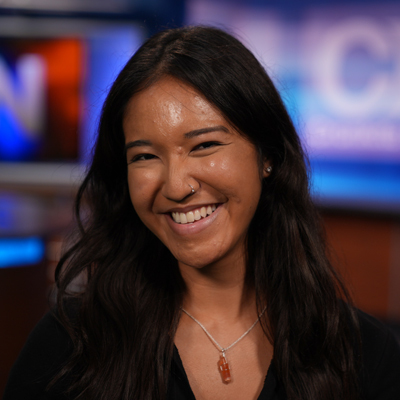For others, they see it as a last chance to showcase skills they hope will open doors.
Even though the global pandemic made the recruiting process more difficult – it wiped out the 2020 season – Dale isn’t concerned the international recruiting pipeline will stop any time soon.
“We’d like kids to visit the campus if they can before they come in because they get to see where they’re going to be,” said Dale, remembering the days of VHS tapes and letter-writing. “But these days, there’s YouTube, it’s so much easier than it was when I was coaching 25 years ago. … It’s great for coaches, but it’s really, really good for kids.”
The opportunities have turned into playing time as international players like Oliver and Appiah have become staples of the Matadors’ starting 11, with the latter leading the Arizona Community College Athletic Conference with 11 assists.
But while international talent sometimes steals the spotlight from the local crop, Yuma products including Ernie Garza are excited to have them as teammates instead of opponents.
“All these different cultures in the team are really fun, exciting, and new every day,” he said. “Because you got Japanese, Italian, French. You can count more and more than one hand. It’s just really amazing, really a good experience overall for a United States player.”
Garza, cut twice from the team in tryouts, made the squad for the first time in 2021. He sees the rise of international players as another incentive to work on his craft and put Yuma soccer on the map.

Kenneth Dale arrived at Arizona Western College in 2005 after various coaching stints, including Pepperdine University, where he helped lead the Division I women’s team. (Photo courtesy of Kenneth Dale)
The various cultures and backgrounds make chemistry a work in progress at times, especially when some are still fine-tuning their English-language skills. Dale sees this as another part of job, regularly checking in with translators and languages professors on campus to make sure his players are on the same page.
Among the different cultures and language barriers is a singular tool that unites them: music. The Matadors regularly celebrate victories as if it’s New Year’s Eve, with each post-game revelry rowdier than the last. Even the team bus isn’t exempt as three-hour treks to Yuma following matches in the Valley are filled with celebratory singing, high-energy techno hits and all around rambunctious behavior, often led by Garza.
“They’re like little kids,” Dale said as he watched his players celebrate on the team bus after a recent 4-1 victory against Scottsdale Community College.
A typical ride: Various ethnicities singing Avicii songs in unison as Garza pounds on the overhead compartments above, eager to get some food after a big win.
On a recent trip, the landing spot was Whataburger. As the driver pulled up to the destination, assistant coach Fabian Munoz Valencia hopped out to check that the restaurant was still open and able to serve over 20 hungry soccer players within minutes. The players filed in, packed from register to door like sardines in a can, hungry and happy from their most recent triumph. They quickly order food and dispersed into groups, nationalites quickly finding their specific tables.
As Dale and Munoz Valencia talked, Dale reflected on recent lineup adjustments due to injuries.
“It’s like the gears on a watch. If one of them is off, the whole thing is,” he said.
The analogy seemed insignificant at first, but as time passed, a scene began to unfold inside the restaurant. Once separate factions, the players began to interact more: France’s Ridwane Boukraa chatted with Japanese teammates, Ghana’s Michael Appiah joked with a group of Frenchmen and Garza handed out meals to other players. The scene turned into a melting pot of communication and camaraderie, much like the gears of a watch that Dale had described.
As Dale ate his burger and fries, he eyed his team, grateful for both their communication and success.
“I thought to myself, if I want to have a long coaching career, I can’t want it more than the players,” he said.
